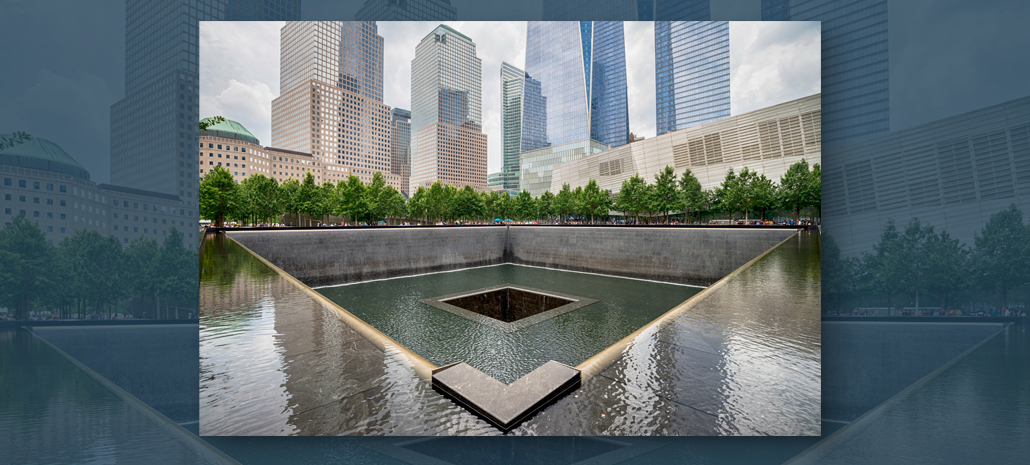Like every American who is old enough, I can remember exactly where I was on that Tuesday morning when the first airplane hit the World Trade Center in New York City. I heard it on the radio news on my way to work. I remember calling Lorrie and hearing her recount what she was watching on TV and her saying, “I don’t think you’re going anywhere.” Eventually, as all the air traffic in the country was being grounded, I drove back home.
The shock and horror of that day were terrible for all of us, but seeing my beloved aviation to which I had devoted my life being used as a weapon against us was heartbreaking. Everyone in aviation works hard to keep everyone safe and preserve every life. Witnessing such an act pervert everything aviation stands for was unbearable.
I watched the nonstop coverage of the attacks for several hours, but as my anger grew in me I had to stop watching and just go outside to the back yard. It was hard to understand how it could still be such a gloriously beautiful September day when our nation was under attack and our world had changed forever. The very first thing I noticed was how absolutely quiet it was. It was the absence of any flights. Only later did we hear any airplanes at all, as F-16 fighters patrolled our skies.
I kept checking with my airline’s pilot scheduling to see when I could fly a trip. It was important to me that we fly again and prove that the terrorists could not win. Finally, on Thursday afternoon I was told that the airline would try to start flying the next morning. When I arrived Friday morning and got to the crew room below the terminal, it was packed with pilots and flight attendants volunteering to work flights. It was chaos, but with one purpose. I would hear a captain say, “I have flight attendants but I need a first officer.” Another said, “I just need one more flight attendant.” I flew two flights that day. We had eight passengers one way and six the other. I had the flight attendants put them all in first class. I stood in the aisle in front of them and told them that even though we had not yet been able to harden all the cockpit doors, we now knew how to prevent what happened from happening again, and we would keep them safe.
I didn’t realize at the time the entirety of the impact on my family. Our daughters were eight and six on September 11, 2001. It wasn’t until January 15, 2009, the day of my Hudson River landing, that our younger daughter let out the tears she had been holding in for all those years, so afraid her daddy’s airplane might someday be used that way. She had held in the tears until the afternoon when Lorrie picked her up from school saying your daddy’s OK but–and eight years’ worth of tears came pouring out.
Our world has continued to change since 2001 in so many ways, but especially commercial aviation. Airline employees and their families, who share the aviation life, but especially frontline employees, have together faced all the challenges, terror attacks, financial downturns, multiple airline bankruptcies, layoffs, the Great Recession, a global pandemic, a deeply divided country in which far too many have made common-sense public health measures a culture war, and the associated huge increase in shockingly bad, violent and dangerous behavior on airplanes putting passengers, crews and their flights in jeopardy. I still fly as a passenger a lot, and every time I do I am so proud that the aviation professionals I meet come to work so dedicated to the safety of all who fly.

